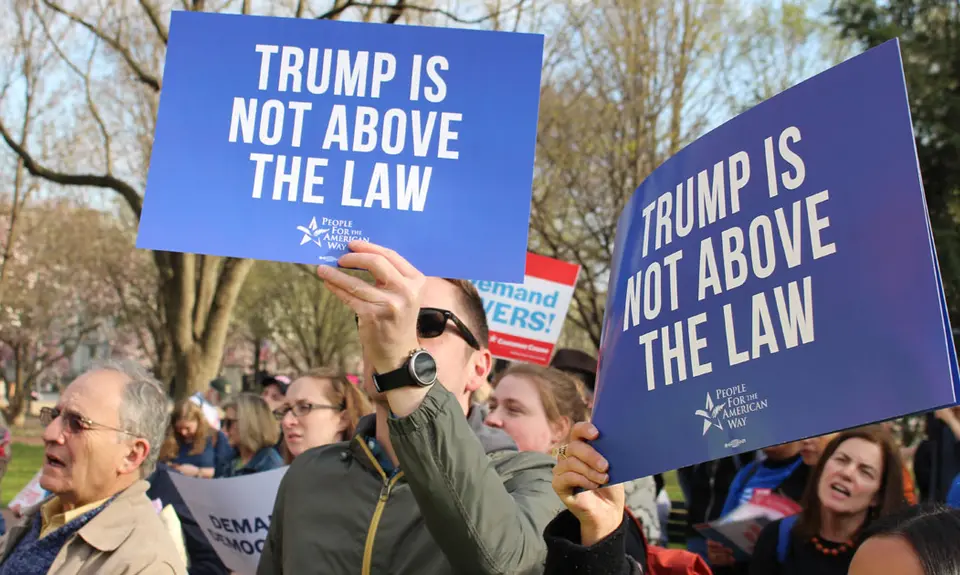Former President Donald Trump is being arraigned today on four federal charges. We know you’ve got questions about the latest Trump indictment, so we asked Elliot Mincberg, our senior counsel, to answer some of those questions and clear up any confusion about what this indictment means, how it’s related to the January 6 insurrection, and what we could see happen as a result.
What charges were Donald Trump indicted on?
The third criminal indictment of Trump contains 4 charges: that he participated in a conspiracy to violate Americans’ right to vote by trying to overturn the 2020 election results; that he engaged in a conspiracy to defraud the government into throwing out the 2020 results; that he obstructed an official proceeding in Congress to recognize the 2020 results; and that he conspired to obstruct the official proceeding.
What do the charges mean, and how are they related to the January 6 insurrection?
These charges mean that Trump illegally tried to reverse the results of the 2020 election that he lost to President Biden. Although prosecutors did not directly charge Trump with participating in the January 6 insurrection, which would be very difficult to prove, they do allege specifically that his lies helped lead to it and helped advance the conspiracy. The charges raise fundamental concerns about our democracy and about whether an incumbent candidate can abuse his authority to seek to reverse an election result that he knows was correct.
What is the potential penalty?
These charges against Trump are punishable by imprisonment for up to 35 years.
Will this stop him from running for president?
No. Simply being charged with a crime does not disqualify Trump or anyone else from running for office.
How are these charges different than the previous Trump indictments?
These charges are different because they relate directly to his improper efforts, while he was still president, to overturn the results of the 2020 election that he lost. The others concern his improper retention of classified and official documents after he was president and his role in hush money payments to a porn star prior to the 2016 election.
What is Trump claiming in defense, and why is he wrong?
Although we do not know all the defenses he will raise, so far he and allies have argued that he was simply engaging in protected First Amendment activity to speak against alleged fraud in the 2020 election. This claim is wrong. As the indictment itself explains, he had the right to speak about the election and alleged fraud, but not to act by using “unlawful means of discounting legitimate votes and subverting election results.” Trump will likely also argue that he did not have the required intent to be convicted because he believed that he had won the election. Intent will be a crucial issue at trial, but again his illegal actions in organizing “fraudulent slates of electors” and trying to get state and federal officials to recognize them will be crucial.
Will he go to trial? If so, when?
That will depend on orders of the federal judge assigned to the case, DC Judge Tanya Chutkan. She will decide the many motions that Trump lawyers will bring to try to dismiss or delay the case and set a schedule. Since Trump is the only defendant in the case and it does not involve classified documents, it is quite possible that a trial will occur in 2024 before the election.
Why is it so important to hold Donald Trump accountable?
It is crucial for our democracy that Trump be held accountable. As with the other indictments against him, this will uphold the principle that no one is above the law. Election law expert Richard Hasen has written that the indictment may be the “most important indictment ever handed down to safeguard American democracy and the rule of law” because of Trump’s illegal attempts to undermine those values.
